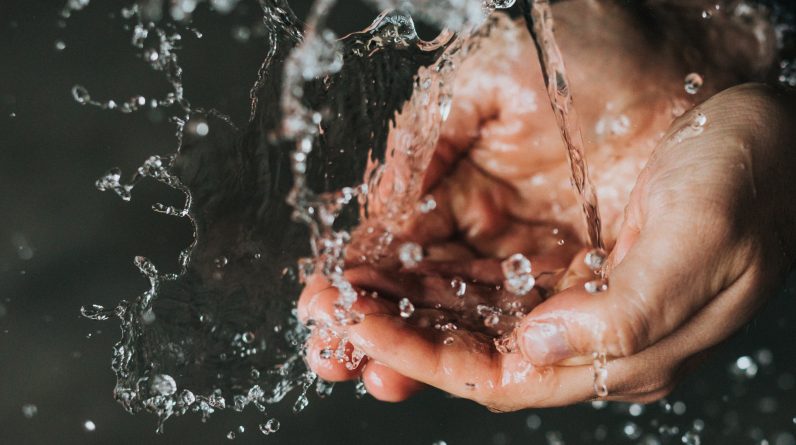
Introduction
Water quality is a critical aspect of our daily lives, and ensuring access to clean and safe water is paramount. When addressing water-related issues, two common solutions that often cause confusion are water filter systems and water softeners. While both aim to improve water quality, they serve distinct purposes and tackle different water problems. In this article, we will delve into the differences between water filter systems and water softeners, shedding light on their functionalities, benefits, and how they work to enhance water quality in our homes.
-
Water Filter System: Purifying Your Water
Water filter systems are designed to purify and remove various contaminants from water, enhancing its overall quality and taste. These filtration systems work on the principle of physical and chemical processes to trap and eliminate impurities, sediments, and harmful substances. The filtration process can target a wide range of contaminants, including chlorine, lead, mercury, pesticides, volatile organic compounds (VOCs), and even bacteria and viruses.
The primary components of a water filter system include a filter media or cartridge and a housing unit. As water passes through the filter media, contaminants are trapped, and the clean water is directed into your household’s plumbing system. Some advanced water filter systems use multiple stages of filtration to ensure comprehensive contaminant removal, providing you with safe and great-tasting water.
-
Water Softener: Battling Hard Water Woes
Water softeners, on the other hand, focus on addressing a specific water issue known as “hard water.” Hard water contains high concentrations of minerals like calcium and magnesium, which can cause various problems within your household. These minerals can lead to limescale buildup in pipes and appliances, reduce soap efficiency, and leave unsightly spots on dishes and glassware.
 Water softeners use a process called ion exchange to combat hard water. The water passes through a tank filled with resin beads that are coated with sodium ions. As the hard water minerals flow through the resin, the ions swap places and the calcium and magnesium ions are captured by the resin beads, while sodium ions are released into the water. This results in softened water that doesn’t cause the issues associated with hard water.
Water softeners use a process called ion exchange to combat hard water. The water passes through a tank filled with resin beads that are coated with sodium ions. As the hard water minerals flow through the resin, the ions swap places and the calcium and magnesium ions are captured by the resin beads, while sodium ions are released into the water. This results in softened water that doesn’t cause the issues associated with hard water.
-
Key Differences: Water Filter System vs. Water Softener
a. Purpose:
- Water Filter System: The primary purpose of a water filter system is to remove a wide range of contaminants, improving the taste and safety of your drinking water.
- Water Softener: A water softener specifically addresses the issue of hard water by removing calcium and magnesium ions, preventing limescale buildup and other related problems.
b. Contaminant Removal:
- Water Filter System: These systems can target contaminants such as chlorine, lead, sediment, VOCs, and other harmful substances commonly found in tap water.
- Water Softener: The focus of a water softener is solely on removing the minerals that cause hardness, not other contaminants.
c. Filtration Mechanism:
- Water Filter System: Utilizes physical and chemical processes to trap and remove impurities from water.
- Water Softener: Relies on ion exchange to remove calcium and magnesium ions from water and replace them with sodium ions.
d. Impact on Water Taste:
- Water Filter System: Improves the taste and odor of water by removing unpleasant substances.
- Water Softener: Does not alter the taste of water; its main purpose is to combat hard water-related issues.
e. Effect on Appliances and Plumbing:
- Water Filter System: Protects appliances and plumbing from contaminants that may cause damage or decrease their efficiency.
- Water Softener: Prevents limescale buildup in pipes and appliances, extending their lifespan and improving efficiency.
- Choosing the Right Solution for Your Needs
To determine which system is most suitable for your home, it’s essential to understand your specific water quality concerns. If you are primarily worried about contaminants affecting your water’s taste and safety, a water filter system is the ideal choice. On the other hand, if you are experiencing limescale buildup, soap scum, or other issues caused by hard water, investing in a water softener is the way to go.
However, it’s important to note that some households may require both solutions to address multiple water quality concerns effectively. In such cases, a combination of a water filter system and a water softener can provide comprehensive water treatment.
-
Conclusion
In summary, water filter systems and water softeners play distinct roles in enhancing water quality within our homes. A water filter system targets a wide range of contaminants, ensuring safe and clean drinking water, while a water softener focuses on eliminating the minerals that cause hardness, preventing related issues. Understanding the differences between these two solutions allows homeowners to make informed choices and tailor their water treatment systems to their specific needs. By investing in the right system, you can enjoy the benefits of high-quality water for a healthier and more comfortable lifestyle.

